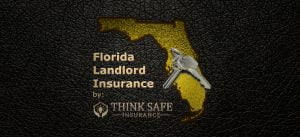Have you heard about the Florida Land Trust? If so, what do you know about it? I remember when I first started going to real estate investor meetings, there were all kinds of discussions about asset protection. LLCs, series LLC, land trusts, and more. In this article, we are going to look specifically at Florida land trusts.

First, we aren’t attorneys; we don’t provide legal or tax advice; and you should review any of this info with your legal team and CPA before moving forward with any entity structure. With this article, we want to give you an overview of the available info, so that you have better info when forming your own questions.
Benefits of Florida Land Trusts
There are many benefits to owning properties in land trusts. We are going to cover a few of the big benefits here, but there are actually many more. More info can be found by speaking with an estate planning attorney or land trust company, and we’ve listed a few below.
Privacy of Ownership / Confidentiality
When properly using a Florida Land Trust, your name can stay out of public records. This makes it more difficult to find who owns the property and what other assets you may own. While I had heard a lot about this benefit, I didn’t know if it really worked in real life. While I think this situation is a little more cutthroat than I’d like to be, it shows that the Florida land trust was working as designed: WFLA article
Avoiding Probate
The Florida land trust can automatically transfer interest in the property to the successor beneficiary upon the death of the person with the existing beneficial interest. This can avoid long and costly court proceedings.
While land trusts can be a great tool for avoiding probate on your properties, you don’t want to have other assets that you haven’t properly planned for. If you need to create or review your estate plan, we recommend speaking with Angela at Ally Legal at 813-445-8178 or visit her website. She is very knowledgeable about all kinds of estate planning tools including land trusts and more specialized trusts like gun trusts.
Avoiding Judgements and Liens

Most judgements and liens attach to property that you own. Since the Florida land trust holds the property with different ownership, it prevents most liens from other properties or individuals from attaching to it. However, a lien against that specific property could still attach in most cases.
Florida Land Trust Companies
* You can find a longer description of each along with other resources on our Landlord Resources page.
- Land Trust Service Corporation 863-678-0011 Learn More >>>
- Mark Warda’s book is sometimes available on Amazon.
- Common Wealth Trust Services 407-755-1010 Learn More >>>
- Augie Bylott’s Land Trust book on Amazon.
Some Common Issues
Getting a Loan for a Land Trust
Land trusts don’t qualify for many traditional loan programs. Sometimes you can find local banks that will offer a portfolio loan for land trusts. Private and hard money loans are always an option as well. There are actually loan programs available for land trusts, though. You want to work with an experienced mortgage broker for the best options for a mortgage on your land trust.
Land Trust Insurance

Many companies don’t write insurance for land trusts. Their landlord insurance may apply for family trusts or other revocable trusts, but for some reason most companies won’t insure Florida land trusts. At Think Safe Insurance, we do have several options for Florida land trust insurance. Give us a call at 813-425-1626 to discuss your options and get a quote.
Title Companies Unfamiliar with Land Trusts
You need an investor friendly title company. Title companies that aren’t familiar with Florida land trusts may request a copy of your trust documents. These documents don’t need to be provided, as the deed should include the trustee’s powers and authority. This is why it’s important to work with a title company that is familiar with Florida land trusts.
Conclusion
There are a lot of benefits to holding your investment property in a Florida land trust. Everybody’s situation is different, though. You will want to review your entire situation with your attorney and CPA, though, to determine what structure fits your needs the best.

